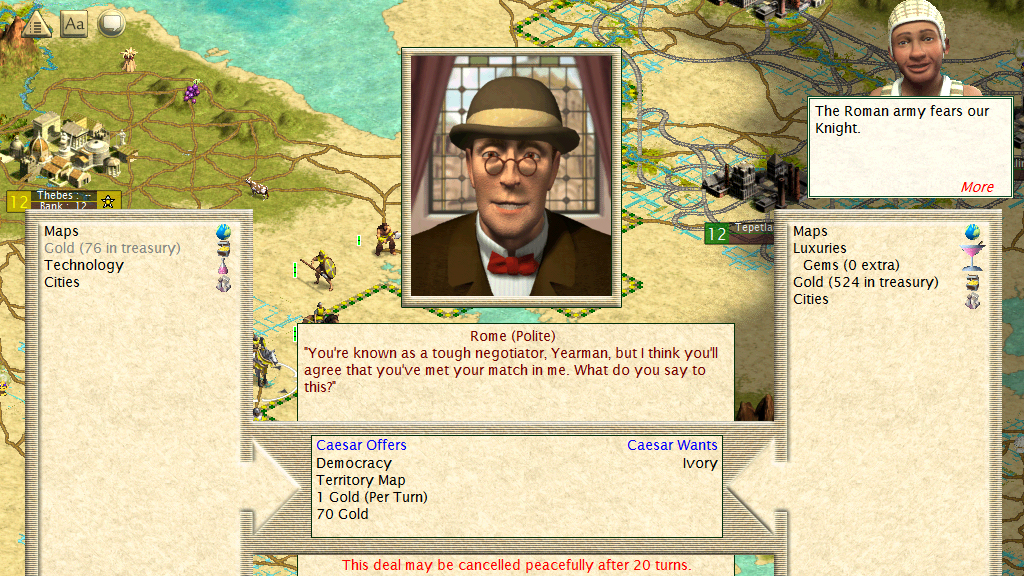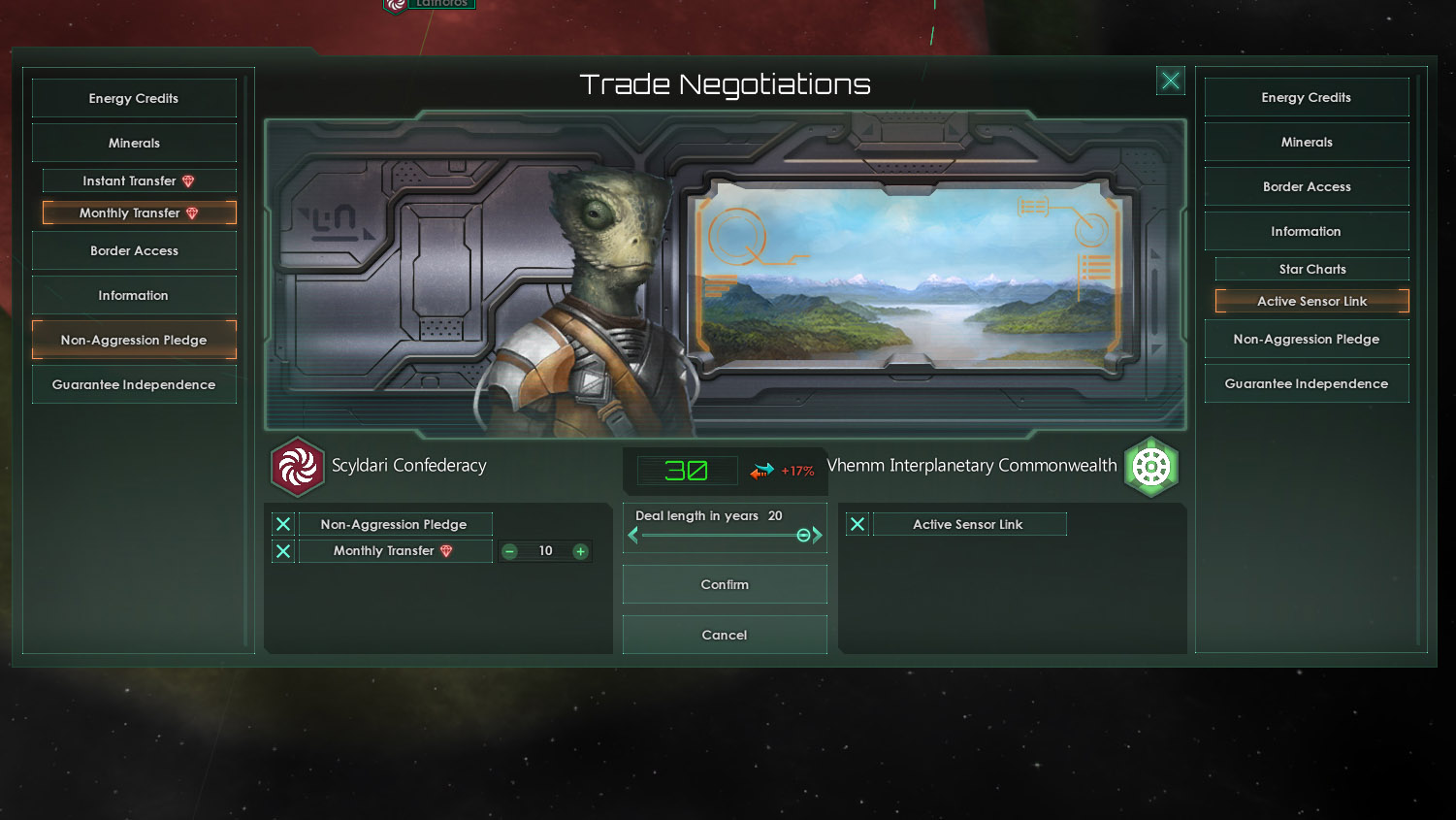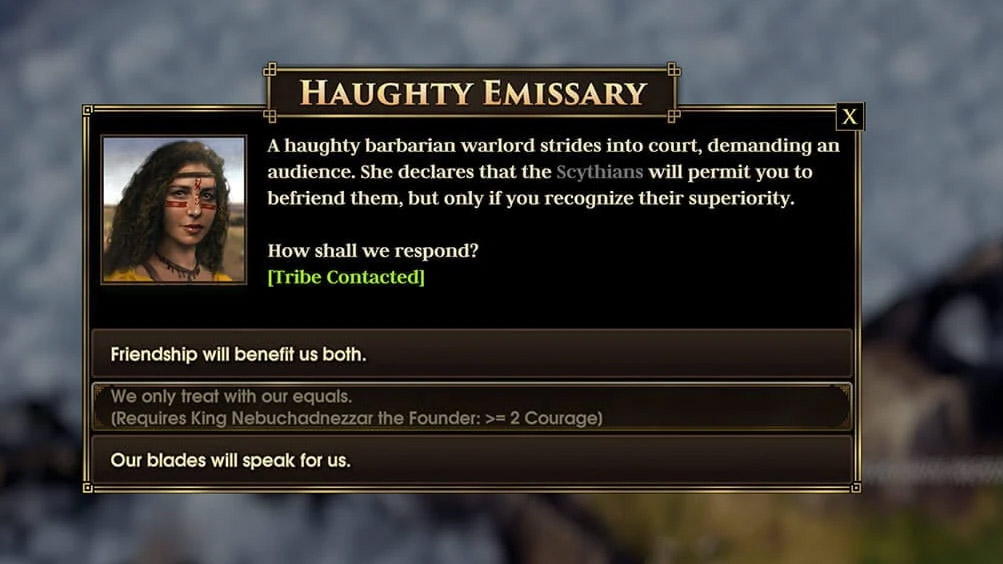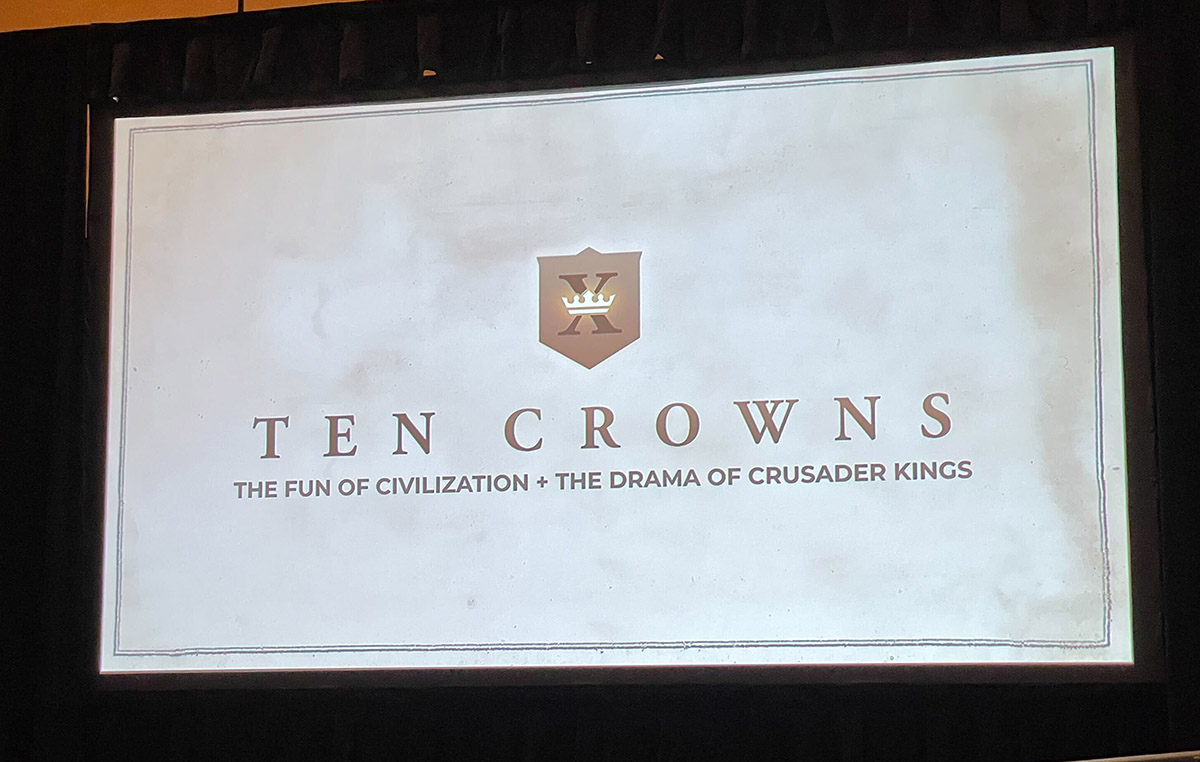Soren Johnson says Civ 3's bargaining table was a 'big mistake'
The 4X designer offers a mea culpa for an influential feature.

Game designer Soren Johnson is sorry. In his 20s, he was responsible for load-bearing features in two of the most influential strategy games of all time: Civilization 3 and Civilization 4. They're widely regarded as all-time greats, but at a GDC 2022 talk on Wednesday, Johnson playfully scrutinized the decisions he made back then, and declared one frequently-duplicated Civilization 3 feature to be irredeemably bad.
Civ 3's bargaining table was a "big mistake," said Johnson.
The bargaining allows players to request gold, commodities, or new diplomatic relationships from other civilizations (or demand them, or offer them freely) by proposing a deal and seeing if the other leader will accept it: horses for ivory, peace for gold, and so on. It's how you make trades and 'do diplomacy' in Civilization games.
Johnson pointed out that the same kind of bargaining screen has since appeared in Galactic Civilization 3, Total War: Three Kingdoms, Total War: Warhammer, and Stellaris. It's one of those videogame things that's so common it feels like it's always existed, but Johnson believes Civ 3 introduced it to the 4X genre. Now he's offering his mea culpa.
"My first inkling that there was a problem was after Civ 3 shipped, and people started to complain that the AIs all started to have the same techs," said Johnson. "The reason was that the AIs were using the bargaining table the same way the humans did."
In another part of the talk, Johnson argued that while some players may say they want AI opponents to behave like human opponents, they typically don't. When the AI starts metagaming—for instance, by ganging up on whichever player is winning for no reason other than to stop them from winning—the player can perceive it as unfair or out-of-character. In Johnson's experience, players want AIs to act according to their fictional context rather than picking the optimal strategy like a person would.

Players were ruining the game for themselves.
Soren Johnson
"Every time the AI got new technology they would [use the bargaining table to] contact all of their friends, rivals, even enemies to see what they could get in return by trading it away, which cost them nothing to do, but would get them a little something in return," said Johnson. "From the human's perspective, it looked like the AIs were a giant tech cartel and were selling techs to each other at bargain prices, but the AI was simply pursuing the optimal strategy."
The biggest gaming news, reviews and hardware deals
Keep up to date with the most important stories and the best deals, as picked by the PC Gamer team.
That was a clue to the identity of the bigger problem: the optimal strategy itself. Players gravitate to it just like the AI, and it isn't any fun. I can personally back Johnson up on that observation: I don't think I've ever enjoyed negotiating in Civ games, even though I want to enjoy it, because I like the idea of pursuing diplomacy.
"Players were ruining the game for themselves," said Johnson, referencing a 2011 blog post in which he stated the axiom: "Given the opportunity, players will optimize the fun out of a game."
"There was no cost to contacting every civ, every turn, and also endlessly tinkering with how to get the best deal possible," he said, "no reason not to just put one more gold piece on their side of the table until you hit the AI's maximum price for what you're trading away."
The necessity of trade-offs—a cost for every action—was the theme of Johnson's talk, which covered a number of 4X design conventions that he rethought during the design of his latest strategy game, Old World (which we liked a lot). In some cases, he found new answers to old problems by reframing them. While evaluating the pros and cons of ditching the one-unit-per-tile system and allowing unit stacking, Johnson discovered that what he really wanted to do was get rid of automatic counterattacks. When it came to the bargaining table, however, his answer was to demolish it straight away and find a new way to handle diplomacy from scratch.

"This is a classic 'cursed game design problem,' as defined by Alex Jaffe in his fantastic 2019 GDC talk," said Johnson. "There is a conflict here between the power and flexibility of the bargaining table, and the give and take of real diplomacy where flawed personalities come into play and you can't just nickel and dime a rival without offending them."
Instead of a bargaining table, Johnson included in Old World a simple marketplace where resources can be bought and sold (the buy price is double the sell price, so the trade-off is obvious) and incorporated diplomacy into randomized story events. As an example of how that plays out, Johnson said that you might marry a Babylonian, and then years later be prompted to choose a side in a war between Babylon and another civilization because of that connection.
"This system presents the player with interesting diplomatic events and choices that react to the current game state, serving up possible paths to war at a pace that is healthy for the player," said Johnson. "Getting rid of the bargaining table was a risky decision because players expect it by now, but the end result can be much more dynamic and interesting, and free the player of the burden of trying to min-max the bargaining table."
The hour-long talk will hopefully be available free on YouTube someday (update: now it is!) because Johnson's criticism of his own work was sharp. He covered the reasoning behind Old World's changes to tech research, unit movement, tooltips, city placement, AI, victory conditions, and more, describing his latest game as a conversation with himself as a younger designer.

Some other miscellaneous but fun details from the talk: Old World was originally conceived as a tablet game, and Johnson had wanted to call it Ten Crowns for a long time, but couldn't find a way to get the name to make sense as the design evolved. When the title Old World was proposed, the studio's lawyer pointed out that Amazon was making a game called New World, but Johnson brushed it off.
"I actually didn't give it much thought, because how often does Amazon actually ship their games?" he joked. "So yeah, it was fun trying to spend the end of last year explaining on Twitch that we weren't some weird prequel to New World."

Tyler grew up in Silicon Valley during the '80s and '90s, playing games like Zork and Arkanoid on early PCs. He was later captivated by Myst, SimCity, Civilization, Command & Conquer, all the shooters they call "boomer shooters" now, and PS1 classic Bushido Blade (that's right: he had Bleem!). Tyler joined PC Gamer in 2011, and today he's focused on the site's news coverage. His hobbies include amateur boxing and adding to his 1,200-plus hours in Rocket League.

